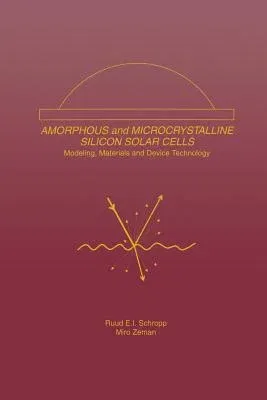Ruud E I Schropp
(Author)Amorphous and Microcrystalline Silicon Solar Cells: Modeling, Materials and Device Technology (Softcover Reprint of the Original 1st 1998)Paperback - Softcover Reprint of the Original 1st 1998, 23 February 2014

Qty
1
Turbo
Ships in 2 - 3 days
In Stock
Free Delivery
Cash on Delivery
15 Days
Free Returns
Secure Checkout
Part of Series
Electronic Materials: Science & Technology
Print Length
207 pages
Language
English
Publisher
Springer
Date Published
23 Feb 2014
ISBN-10
1461375762
ISBN-13
9781461375760
Description
Product Details
Authors:
Book Edition:
Softcover Reprint of the Original 1st 1998
Book Format:
Paperback
Country of Origin:
NL
Date Published:
23 February 2014
Dimensions:
23.39 x
15.6 x
1.24 cm
ISBN-10:
1461375762
ISBN-13:
9781461375760
Language:
English
Location:
New York, NY
Pages:
207
Publisher:
Weight:
331.12 gm

